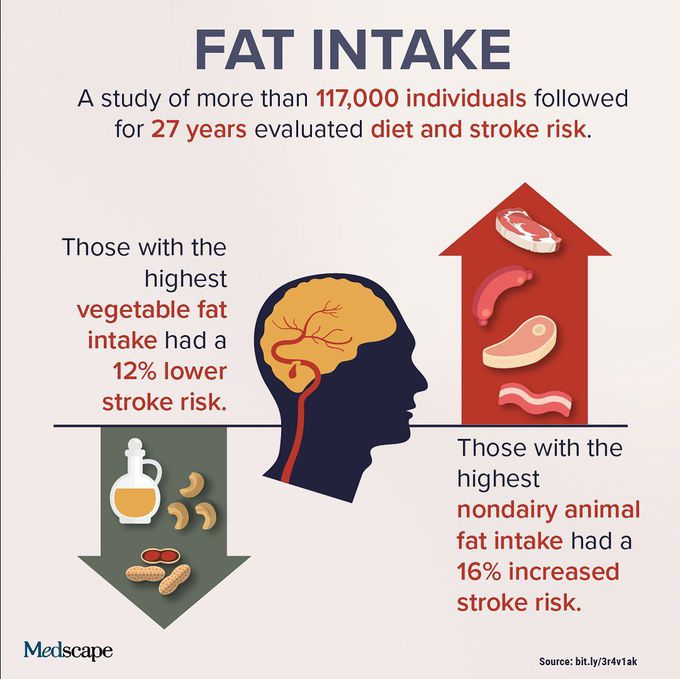


Dietary Fat Consumption
Notably, new research presented at the virtual #AHA21 scientific Sessions found that not only is meat consumption associated with increased stroke risk, but vegetable fats may help reduce that risk. Fenglei Wang, PhD, and colleagues investigated how total dietary fat, different types of fat, and fats from different foods were associated with incident stroke. The researchers found that the highest quintile of vegetable fat intake was associated with a lower total stroke risk compared with the lowest quintile (hazard ratio [HR], 0.88; 95% CI, 0.81-0.96; P < .001). Similarly, the highest intake of polyunsaturated fat was also associated with lower total stroke (HR, 0.88; 95% CI, 0.80-0.96; P = .002). The highest intake of nondairy animal fat was associated with an increased risk for total stroke (HR, 1.16; 95% CI, 1.05-1.29; P < .001). The risk for stroke was lower by 9% per serving per day for vegetable oil but increased by 8% and 12%, respectively, per serving of total red meat or processed red meat. Red meat included beef, pork, or lamb, as well as processed meats such as bacon, sausage, bologna, hot dogs, and salami. "We would recommend that people reduce consumption of red and processed meat, minimize fatty parts of unprocessed meat if consumed, and replace lard or tallow (beef fat) with nontropical vegetable oils such as olive oil, corn or soybean oils in cooking, to lower their stroke risk," Wang said.
Source: https://www.instagram.com/p/CXD7aGQOlCg/?igshid=YmMyMTA2M2Y=
